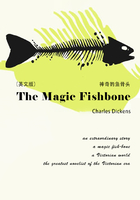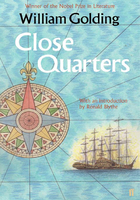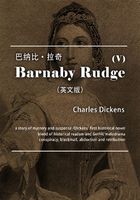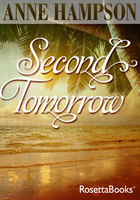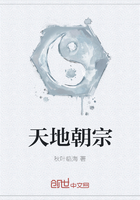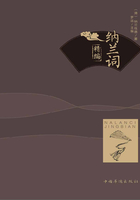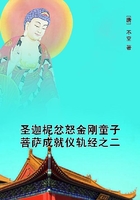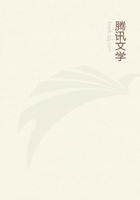On 11 January 1893, diligent readers of The Times learned, from a small news item, that the elder son of Lord and Lady Randolph Churchill had 'met with an accident' on the previous afternoon. 'No bones were broken,' the newspaper reported, 'but he was very much shaken and bruised.' He had in fact fractured his thigh, though in the year before the first use of X-rays this was not known; indeed, it did not become known for seventy years, when this same thigh was X-rayed after a fall in Monte Carlo in 1963.
While seeking to evade his brother and a cousin during a holiday chase on his grandmother's estate in Bournemouth, Churchill, trapped on a bridge over a chine, and looking for a way to evade capture, had seen the slender top of a fir tree and jumped on to it. His grip failed him and he plunged down the ravine. It had been a twenty-nine-foot fall, on hard ground. For three days he lay unconscious. Then, in considerable pain, he was taken up to London. 'The doctors say I shall not be cured for two months yet,' he wrote to Jack in the first week of February. 'I pass the greater part of my time in bed.'
For the last month of his recuperation Churchill went back to the south coast, this time to Brighton, to the house of the 8th Duke of Marlborough's widow, Duchess Lily. She was 'kindness personified' he wrote to his father. While at Brighton he befriended a young Army officer, Hugh Wyllie; twenty-three years later Wyllie, then serving on the Western Front, was killed by a shell on the Menin road.
At the beginning of March, Churchill began work at Captain James's, a crammers in Lexham Gardens, in West London. 'I have issued orders,' James wrote to Lord Randolph, 'for your son to be kept at work and that in future he is to do the full hours. I had to speak to him the other day about his casual manner. I think the boy means well but he is distinctly inclined to be inattentive and to think too much of his abilities.' Churchill had been 'rather too much inclined up to the present,' James wrote, 'to teach his instructors instead of endeavouring to learn from them, and this is not the frame of mind conducive to success.' James had been particularly annoyed when his new pupil 'suggested to me that his knowledge of history was such that he did not want any more teaching in it! The boy has very many good points in him but what he wants is very firm handling.'
That Easter, Churchill returned to Brighton. 'I am very glad to have Winston with me,' Duchess Lily wrote to Lord Randolph, 'for I have grown really fond of the boy. He has lots of good in him-and only needs sometimes to be corrected, which he always takes so smartly and well.'
While at Brighton, Churchill had sent a telegram to his father warning of an outbreak of fever at Harrow. He was worried that his brother might be in danger of catching it. 'Papa was so angry with you for telegraphing to him in that stupid way,' Lady Randolph wrote in rebuke. 'Of course we all know about the fever from Jack & from Mr Welldon-& in any case to write was quite enough. You take too much on yourself young man, & write in such a pompous style. I'm afraid you are becoming a prig!'
Among Duchess Lily's dinner guests while Churchill was at Brighton was A.J. Balfour, the future Conservative Prime Minister. Lady Randolph was somewhat nervous of her son's social life. 'I don't want to preach dear boy, but mind you are quiet & don't talk too much & don't drink too much.' Churchill now followed his father's own speeches carefully, later recalling with sadness that 'he seemed to be hardly holding his own'. He hoped the time would eventually come when he would be able to 'come to his aid', and he encouraged his father with enthusiastic comments on his speeches. 'If you will let me say so,' he wrote after reading the text of one such speech in The Times, 'I thought it better than anything you have done so far.' He also became a frequent visitor to the House of Commons, always able because of his father to find a place in the Distinguished Strangers' Gallery.
At lunch and dinner parties given by his parents in the spring of 1893, Churchill met two future Liberal Prime Ministers, Lord Rosebery and H.H. Asquith. On April 21 he was in the Gallery when Gladstone wound up the second reading of the Home Rule Bill. 'The Grand Old Man,' he later recalled, 'looked like a great white eagle at once fierce and splendid. His sentences rolled forth majestically and everyone hung upon his lips and gestures, eager to cheer or to deride.'
After a dinner at Grosvenor Square at the end of May, Churchill's uncle Edward Marjoribanks, then Liberal Chief Whip, spent half an hour explaining to him how the Liberals would overcome the opposition of the House of Lords. 'I wish you had been there to answer him,' Churchill wrote to his father, who was at a public meeting in Bradford, 'as I am sure there was an answer though I could not think of it.' The Liberals were in fact unable to find a means of overcoming the Peers, who defeated the Home Rule Bill by 419 votes to 41. 'Overcoming the Peers' was to be Churchill's own battle cry fifteen years later.
A newly elected Conservative MP, Edward Carson, invited Churchill to dine with him in the House of Commons. Churchill asked his father if he could break off his work at the crammers to do so. That week Churchill was Carson's guest at a Home Rule debate. Twenty-one years later, when Carson himself took Lord Randolph's cry 'Ulster will fight, Ulster will be right' to the streets, Churchill was not only his opponent, but was prepared to use force against Carson's Ulster Volunteers.
At July's end, Churchill took his third Sandhurst examination. On August 3, before the results were known, he prepared to leave London for Switzerland and Italy with his brother Jack and a tutor, John Little. They met at the station, where, to Churchill's surprise, Little congratulated him on his success. It was the first he knew of it. 'I looked in the paper', he told his father, '& found this to be true.' He was at last a soldier.
Churchill had raised his marks by 163, to 6,309. This was not quite good enough, by only eighteen marks, to get him into the infantry, but he came fourth on the cavalry list. From Dover, just before crossing the Channel, he sent telegrams announcing his success to his parents, his relations and his former headmaster. 'I was so pleased to get your wire today and to know you had "got in"!!' Duchess Lily replied that same day. 'Never mind the infantry: you will love the cavalry, and when Papa comes back we will get the charger.' She added, 'Don't tumble down another precipice and hurt any more of your organs-for I will not be there to take care of you.'
'I cannot help saying how much I rejoice in your success,' wrote Welldon, 'and how keenly I feel that you have deserved it.'
As he travelled through Switzerland, Churchill sent his father two accounts of the holiday. In the first week of August he was at a hotel in Lucerne with 'lifts, electric light & fireworks (every Saturday)'. On the fourth day of the holiday Mr Little wrote to Lord Randolph, 'We have all got on very well together; although Winston is inclined to be extravagant.' On August 8 Churchill wrote to his father, 'I am looking forward to going to Sandhurst very much, & am very thankful I was lucky enough to get in.' Three days later he promised his father he would 'try & do well there, from the first'.
On August 14, when he was in Milan, Churchill received a letter from his father about the Sandhurst results. It was a letter neither of congratulation nor of praise. Unknown to his son, Lord Randolph was beset by an illness, diagnosed by his doctors as syphilis, that was undermining his health and his sanity. He could share none of the pleasure of Duchess Lily or Dr Welldon at his son's success. 'I am rather surprised,' he wrote, 'at your tone of exultation over your inclusion in the Sandhurst list. There are two ways of winning in an examination, one creditable, the other the reverse. You have unfortunately chosen the latter method, and appear to be much pleased with your success.' In the failure to get into the infantry, Lord Randolph continued, 'is demonstrated beyond refutation your slovenly happy-go-lucky harum scarum style of work for which you have always been distinguished at your various schools. Never have I received a really good report of your conduct in your work from any master or tutor you had from time to time to do with.'
Showing all the anger that was to characterize the gradual collapse of his nervous system, Lord Randolph continued, 'With all the advantages you had, with all the abilities which you foolishly think yourself to possess & which some of your relations claim for you, with all the efforts that have been made to make your life easy & agreeable & your work neither oppressive nor distasteful, this is the grand result that you come up among the 2nd rate & 3rd rate class who are only good for commissions in a cavalry regiment.' There was more anger to come, the sign of a mind that was becoming slowly deranged, although the young Churchill had no idea of this. 'Now it is a good thing,' Lord Randolph continued, 'to put this business very plainly before you. Do not think I am going to take the trouble of writing you long letters after every folly & failure you commit & undergo. I shall not write again on these matters & you need not trouble to write any answer to this part of my letter, because I no longer attach the slightest weight to anything you may say about your own achievements & exploits.'
The next paragraph of Lord Randolph's letter was the harshest. 'Make this position indelibly impressed on your mind,' he wrote, 'that if your conduct and action at Sandhurst is similar to what it has been in the other establishments in which it has been sought vainly to impart to you some education, then my responsibility for you is over. I shall leave you to depend on yourself, giving you merely such assistance as may be necessary to permit of a respectable life. Because I am certain that if you cannot prevent yourself from leading the idle useless unprofitable life you have had during your schooldays & later months, you will become a mere social wastrel, one of the hundreds of the public school failures, and you will degenerate into a shabby unhappy & futile existence. If that is so you will have to bear all the blame for such misfortunes yourself. Your own conscience will enable you to recall & enumerate all the efforts that have been made to give you the best of chances which you were entitled to by your position, & how you have practically neglected them all.'
Lord Randolph had sent a similarly disturbed letter to Duchess Fanny, in which he wrote that the 'whole result' of the family's kindnesses to the young boy 'had been either at Harrow or Eton to prove his total worthlessness as a scholar or a conscientious worker'. Churchill had of course never been to Eton; his father was already losing his grip on reality. Unaware of the cause, Churchill was crushed by his father's rebuke. 'When he showed me your letter,' Mr Little wrote to Lord Randolph, 'we had a long talk and he told me a good deal about his views of man and things. He was a good deal depressed.' Mr Little tried to help Churchill overcome the shock of his father's letter, pointing out that in going to Sandhurst he would begin what was 'practically a new page in his life', and that such opportunities for a new start occurred 'at most, but once or twice in a lifetime'.
'I am very sorry indeed that you are displeased with me,' the unhappy Churchill wrote to his father from Milan. 'As however you tell me not to refer to the part of your letter about the Examination I will not do so, but will try to modify your opinion of me by my work & conduct at Sandhurst during the time I shall be there.' Churchill sought to assure him, 'My extremely low place in passing in will have no effect whatever on my chance there.' To his mother he wrote that same day of what a disappointment it was to find that his father was 'not satisfied', and he added, 'After slaving away at Harrow & James' for this Exam, & trying, as far as I could, to make up for the time I had wasted, I was only too delighted to find that I had at length got in.' At Sandhurst he would begin with new subjects, 'in which I shall not be handicapped by past illness'.
'If I had failed,' Churchill told his mother, 'there would have been an end of all my chances. As it is, my fate is in my own hands & I have a fresh start.'
The holiday continued, with swimming in the baths at Milan and a visit to the cathedral. Then the trio went north to Baveno for an expedition in a rowing boat on Lake Maggiore. Then they went back to Switzerland, to Zermatt, before returning to England. Churchill was pleased that as a result of a number of last-minute vacancies he could go into the infantry after all. Lord Randolph had in fact used his influence to obtain a special commission for his son in the infantry, in the 60th Rifles. 'The future now is in your hands,' Lady Randolph wrote that September, 'to make or to mar it. I have trust in you to make it a success.'
***
Churchill's first letters from the Royal Military College, Sandhurst, reveal his determination to make the best of his new career. 'Of course it is very uncomfortable,' he wrote to his father about his room: 'No carpet or curtains. No ornamentation or adornments of any kind. No hot water and very little cold.' The discipline was 'far stricter than Harrow. Hardly any law is given to juniors on joining. No excuse is ever taken-not even with a plea of "don't know"-after the first few hours, and of course no such thing as unpunctuality or untidiness is tolerated.' There was, however, Churchill wrote, 'something very exhilarating in the military manner in which everything works; and I think that I shall like my life here during the next 18 months very much'.
Churchill quickly became absorbed in the professional world of the soldier. 'The work is very interesting and extremely practical,' he wrote to his father on his tenth day, 'Shot and shell of all kinds-bridges, guns, field and siege, mapping, keeping regimental savings bank accounts, inspecting meat etc', as well as the parades and drills. There were five subjects of study; fortification, tactics, topography, military law, and military administration.
Lord Randolph remained cantankerous, complaining on several occasions about the style of his son's letters to him. 'I am awfully sorry that Papa does not approve of my letters,' Churchill wrote to his mother. 'I take a great deal of pains over them & often re-write entire pages. If I write a descriptive account of my life here, I receive a hint from you that my style is too sententious & stilted. If on the other hand I write a plain and excessively simple letter-it is put down as slovenly. I never can do anything right.' Thus far, Churchill added: 'I have been extremely good. Neither late nor lazy, & have always had five minutes to wait before each parade or study.'
Churchill's letters to his parents were full of enthusiasm. 'Today,' he wrote to his father on September 20, 'we learnt to make all kinds of knots and to lash beams together. We have also been out making, or learning to make sketch maps.' He was shooting with both revolver and rifle. 'On Monday we have to go and fire with a new 12 pounder gun, which has just been issued to the Artillery.' After a month he wrote proudly to his mother, 'So far I have not been late for anything (& there are at least six engagements per diem).' From Mrs Everest came the same caring counsel he had received from her while he was at Harrow, 'Don't expose youself to the sun this hot weather dear', and 'Don't run into debt or keep bad company.'
Ill-health was still a burden and a worry; that October, after a three-quarter of a mile run with 'rifles & accoutrements', Churchill had to be helped off the parade ground and, he told his mother, 'have been bad ever since'. He had seen the doctor, who said there was nothing wrong 'except that my heart does not seem very strong'.
That autumn Churchill's relationship with his father improved, as did Lord Randolph's health, though this was only a temporary remission. 'I think Papa seems much better for his rest,' Churchill wrote to his mother, '& much less nervous.' He had been 'very pleased to see me and talked to me for quite a long time about his speeches & my prospects'. Churchill was pleased when his father, in a renewed burst of political vigour, lashed into Asquith during a speech at Yarmouth, calling Asquith's speeches 'a labyrinth of nonsense'. The Yarmouth speech, he told his father, was 'very good'. The relationship between father and son was closer than it had ever been. His son was 'much smartened up', Lord Randolph wrote to Duchess Fanny; at Lord Rothschild's house at Tring the guests 'took a great deal of notice of him' and yet he was 'very quiet & nice mannered'.
'What a comfortable house this is,' was Churchill's comment to his mother on Tring, comparing it with Sandhurst's 'dilapidated & tobacco-smelling rooms'. Lord Randolph now gave his son some extra money to pay his bills, and sent him two boxes of his best cigarettes. He also took him to the Empire Theatre and to the homes of his racing friends. Yet even at this time of closeness all was not well. 'If ever I began to show the slightest idea of comradeship,' Churchill later recalled, 'he was immediately offended; and when once I suggested that I might help his private secretary to write some of his letters, he froze me into stone.'
That winter Lady Randolph told her son that Duchess Fanny, who two years earlier had taken on Mrs Everest after Lady Randolph had no longer needed her, decided she would have to leave. She was to be dismissed by letter. 'If I allowed Mrs Everest to be cut adrift without protest in the manner which is proposed,' Churchill wrote, 'I should be extremely ungrateful-besides I should be very sorry not to have her at Grosvenor Square because she is in my mind associated more than anything else with home.' Mrs Everest was 'an old woman', he pointed out. She had been in Lady Randolph's employ for nearly twenty years. 'She is more fond of Jack and me than any other people in the world & to be packed off in the way the duchess suggests would possibly, if not probably break her down altogether.'
As intended, Mrs Everest was dismissed by letter. 'I think such proceedings cruel & rather mean,' Churchill wrote; she should not be sent away until she had found 'a good place' elsewhere; 'Dearest Mamma, I know you are angry with me for writing. I am very sorry but I cannot bear to think of Everest not coming back, much less being got rid of in such a manner.' His appeal was in vain; Mrs Everest left the family employ.
From Lady Randolph came a complaint; his father did not like him smoking cigars. 'I will not do so any more,' he promised. 'I am not fond enough of them in having any difficulty in leaving them off.' To his father, Churchill promised not to smoke 'more than one or two a day-and very rarely that'.
Churchill's time at Sandhurst was one of learning and comradeship. 'In contrast with my school days,' he wrote thirty-five years later, 'I had made many friends, three or four of whom still survive.' The fate of the others was to become a cause of sorrowful reflection. 'The South African War accounted for a large proportion not only of my friends but of my company,' he explained, 'and the Great War killed almost all the others. The few that survived have been pierced through thigh or breast or face by the bullets of the enemy. I salute them all.'
On 30 November 1893 Churchill celebrated his nineteenth birthday. Ten days later he took his first Sandhurst examination in all five subjects. 'I have caught a cold in my teeth on both sides,' he told his father, '& have got a very bad toothache-which has made me lose a few marks in the examination.' He passed, however, with 1,198 marks out of 1,500. The tactics paper proved his best; he received 278 marks out of 300. That Christmas he stayed at Blenheim. His cousin Sunny and his American wife Consuelo, the Vanderbilt heiress, were 'very kind to me', he told his father on Christmas Day, while to his mother he confided a day later, 'I am enjoying myself here very much-though there is plenty of divine service.' He had been smitten while in London by 'the beautiful Polly Hacket'; the thought of seeing her again, he told his mother, was consolation for leaving Blenheim.
'Polly Hacket came for a walk this morning,' Churchill wrote to Jack on the last day of January 1894, '& we went and strolled Bond Street way.' Later that day he received a note from Miss Hacket herself. 'Did you really mean to leave all those lovely sweets for me,' she asked. 'It was too, too kind of you.'
That February, Churchill had a riding accident. 'Winston is very sorry for himself,' Lady Randolph wrote to Jack, 'he makes a great fuss over his "scraped tail" but he will have plenty of rest from riding when he gets back to Sandhurst.'
Back at Sandhurst, Churchill was taken more seriously ill. From his father came a sympathetic letter. 'That influenza was most unlucky,' he wrote. There was also paternal advice, 'Keep down smoking, keep down the drink & go to bed as early as you can.' Lord Randolph hoped his son would get good reports and positions. 'Well I have written you a regular lecture but it is all sound. The better you do the more I shall be inclined to help you.'
'Such a kind letter from Papa,' Churchill told his mother, to whom he wrote a few days later to report that he had been put head of the riding class. 'It was quite worth while getting up early and taking those lessons', he wrote to his father. Lord Randolph was so pleased that he sent his son a pound each for the men who had looked after him at the barracks. When, later that week, he told his father that Saturday and Sunday were 'terrible' days at Sandhurst, with nothing at all to do, his father replied: 'Why don't you read books on Saturday & Sunday-I will send you some.'
From Mrs Everest, now living at Crouch End in North London, came words of guidance, 'Take plenty of open air exercise & you will not require medicine.' As to character: 'Be a good Gentleman, upright, honest, just, kind & altogether lovely. My sweet old darling, how I do love you, be good for my sake.' That April, Churchill went to see her. 'I hope you will be kept from all evil & bad companions,' she wrote after his return to Sandhurst, '& not go to the Empire & stay out at night, its too awful to think of, it can only lead to wickedness & everything bad. I cannot bear to think of you being led astray like that.'
A week after this appeal Churchill did go to the Empire Theatre for an evening of fun before returning to the routine of riding and map-making. He also joined a voluntary signalling class. There was trouble, however, after he sent a letter to his father announcing his next visit to London. 'If you are always running up to town every week on some pretext or other,' Lord Randolph wrote, 'your mind is distracted from your work besides being an unnecessary expenditure of money.' Lord Randolph added, 'You are 20 & in November 21, & you must remember always that you are a military cadet and not a Harrow schoolboy.' In fact Churchill was nineteen, and would be twenty in November; the lapse was in keeping with Lord Randolph's recurring and now worsening illness. That April a Parliamentary commentator described him as 'bowed down with physical and mental suffering'. He could no longer finish his speeches; while speaking, his voice would become slurred and he would lose his train of thought.
Churchill was now so afraid of upsetting his father that, when he accidentally dropped his watch into a stream near a deep pool at Sandhurst, he at once took off his clothes and dived for it. He had cause to be concerned; it was a gold watch with the Churchill family arms in enamel on the back, which to his father's distress he earlier dropped on the pavement, denting the case. So now he plunged into the pool to retrieve it; but the bottom was so uneven and the water so cold that he could only stay in for ten minutes, and failed to find it. The next day he arranged to have the pool dredged, but without result. He then borrowed twenty-three soldiers from an infantry detachment, paid them to dig a new course for the stream, borrowed the college fire engine and pumped the pool dry. The watch was found. Churchill sent it at once to his father's London watchmaker, Mr Dent, for repair. By an unfortunate coincidence, Lord Randolph went to Dent that week and was told of the new damage to the watch. His anger was intense. 'I have written a letter to Winston he won't forget,' he told Lady Randolph.
Knowing nothing of the saga of how his son had retrieved the watch, Lord Randolph wrote: 'I would not believe you could be such a young stupid. It is clear that you are not to be trusted with a valuable watch & when I get it from Mr Dent I shall not give it to you back.' The irate father went on to point out that Churchill's brother 'has had the watch I gave him longer than you have had yours'. In all 'qualities of steadiness, taking care of his things & never doing stupid things, Jack is vastly your superior'.
In reply, Churchill sent his father a full account of the search for the watch. 'I tell you all this,' he wrote, 'to show you that I appreciated fully the value of the watch and that I did not treat the accident in a casual way. The labour of the men cost me over £3.' Everything else his father had ever given him, he added, 'is in as good repair as when you gave it first. Please don't judge me entirely on the strength of the watch.' Lord Randolph gave the watch to Jack, who kept it all his life; but his health had again taken a turn for the worse, and within two weeks of his angry letter about the watch, he was advised by Dr Roose to give up public life 'at least for a while', as his nervous symptoms required rest. Churchill was also unwell again. 'Extraordinary headaches all week', he explained to his mother, had forced him to stay in the Sandhurst hospital. As soon as he was well enough, he went up to London. 'I went back and got a very good room at the corner of Jermyn Street,' he wrote to his brother on June 5, 'had an excellent dinner at the Berkeley, and then went on to the Empire.' He had lunched the next day with Polly Hacket, and intended to bring her down to Harrow to see him. He would also go to the Derby, 'However I am not going to bet.' On June 24 he wrote again: 'I had a very pleasant week at Ascot and saw all the races. I backed a couple of winners and a lot of Stiff uns but altogether paid my way.' So much for his intentions not to bet! He had also dined two nights in succession with Lord Wolverton, a Lord-in-Waiting, at Windsor, 'and rode in the Queen Anne's drive and back fourteen miles after dinner'.
Lord Randolph now prepared to travel round the world accompanied by his wife and also by a doctor, George Keith. Before his parents left England, Churchill applied for leave to go to London to see them off. As it was mid-week, his application was refused as a matter of routine. Lord Randolph at once telegraphed to the Secretary of State for War, Sir Henry Campbell-Bannerman, pointing out it was his 'last day in England'. Permission was granted, but Churchill was not at Sandhurst when it arrived. He was making a road map on Chobham Common.
A messenger cycled at once from Sandhurst with an order for Churchill 'to proceed at once to London'. On the following day Lord Randolph was ready to leave. Lord Rosebery, then Prime Minister, was among those at the station to see him off. Churchill later recalled the leave-taking: 'In spite of the great beard which he had grown during his South African journey four years before, his face looked terribly haggard and worn with mental pain. He patted me on the knee in a gesture which however simple was perfectly informing. Then followed his long journey around the world. I never saw him again, except as a swiftly-fading shadow.' Churchill had no idea how ill his father was. 'If Papa comes back all right,' he wrote to his mother in mid-July, 'I shall not regret your going away.'
With his parents in distant lands, Churchill sent Mrs Everest regular reports of his mishaps. 'I have heard from Winny,' she wrote to Jack, 'he says he is better & going about. I hope he is not going to do much of that sort of thing, falling off his horse he may easily be a cripple for life or even get killed poor dear old Boy he is so reckless.' In another letter, after she had seen Churchill in London, she wrote to Jack: 'Poor old boy he was not at all well, he had two boils on his hind quarters which were very painful he could hardly walk, also bad toothe ache, altogether out of sorts. He went back to Sandhurst in spite of his ailments though I waited with him till he left.' The problem, in Mrs Everest's view, was London, 'the late hours & late dinners & so on & no fresh air or exercise, it is utterly impossible to do without that.' A few days later she wrote again: 'Fancy Winny coming up to London every week. He seems to enjoy himself there.'
That August, Churchill again travelled in Europe with Jack and Mr Little. In Belgium, they visited the battlefield of Waterloo. At Antwerp they saw an American warship, the Chicago, and 'examined it', Churchill wrote to his mother, 'as closely as the authorities would let us'. On reaching Switzerland they went to Zermatt, where Churchill climbed Monte Rosa. 'More than sixteen hours of continual walking,' he told his mother. 'I was very proud & pleased to find I was able to do it and to come down very fresh.'
From Zermatt, Churchill, his brother and Mr Little went to Ouchy, below Lausanne. On the third day there Churchill went rowing on the lake with Jack, and, from the boat, they swam. As they did so, a strong breeze caught the red awning over the stern seats, blowing the boat away from them. In vain did Churchill, a good swimmer, try to reach the boat. Again and again, just as he thought he had succeeded, the boat was blown further away. Meanwhile, he later recalled, 'the breeze was freshening', and he and Jack, especially Jack, began to be tired. 'Up to this point no idea of danger had crossed my mind. The sun played upon the sparkling blue waters; the wonderful panorama of mountains and valleys, the gay hotels and villas still smiled. But now I saw Death as near I believe as I have ever seen him. He was swimming in the water at our side, whispering from time to time in the rising wind which continued to carry the boat away from us at about the same speed we could swim.'
Twice more Churchill nearly reached the boat. Each time, however, a gust of wind caught the awning and blew the boat further off. Then 'by a supreme effort I caught hold of its side in the nick of time before a still stronger gust bulged the red awning again'. Churchill quickly rowed back for Jack who, he later wrote, 'though tired, had not apparently realized the dull yellow glare of mortal peril that had so suddenly played around us'.
***
Returning to Sandhurst, Churchill prepared for the final examination. Riding, at which he had become most skilled, was now his passion and joy. But when he wrote to his father asking to be allowed to go into the cavalry, Lord Randolph replied from California, 'You had better put that out of your head altogether at any rate during my lifetime during which you will be dependent on me.' The extra cost of the horses was the barrier. 'I still have hopes,' Churchill wrote to his mother that September, 'that when he sees how anxious I am, he will not force me into the infantry against my inclination.'
Lord and Lady Randolph had reached Japan, where Randolph's condition began to deteriorate. In London, Churchill was making his first foray into public controversy, joining the protests at the move to close the Empire Theatre because of the gathering of young people who, he later recalled, 'not only conversed together during the performance and its intervals, but also from time to time refreshed themselves with alcoholic liquors'. The foyer was also a favourite haunt of the 'Ladies of the Empire'.
In a letter to the Westminster Gazette, signed with his initials 'WLSC', Churchill argued that 'the improvement in the standard of public decency is due rather to improved social conditions and to the spread of education than to the prowling of the prudes'. He also wrote, quite unaware of the nature of his father's illness and its cause: 'Nature metes out great and terrible punishments to the "roué and libertine"-far greater punishments than it is in the power of any civilised State to award. These penalties have been exacted since the world was young, and yet immorality is still common. State intervention, whether in the form of a Statute or by the decision of licensing committees, will never eradicate the evil.'
Churchill accepted that both disputants at the Empire were anxious to see England 'better and more moral' but went on to stress that 'whereas the Vigilante Societies wish to abolish sin by Act of Parliament, and are willing to sacrifice much of the liberty of the subject into the bargain, the "anti-prudes" prefer a less coercive and more moderate procedure'. To try to improve things by repressive measures was 'a dangerous method, usually leading to reaction'.
This letter was published on October 18. On November 3 Churchill made a last effort to rally the anti-prude forces. 'Did you see the papers about the riot at the Empire last Saturday,' he wrote to his brother. 'It was I who led the rioters-and made a speech to the crowd.' His battle-cry that night was 'Ladies of the Empire, I stand for Liberty!' and he told his fellow-protesters: 'You have seen us tear down these barricades tonight. See that you pull down those who are responsible for them at the coming election.' The battle, however, was lost, and the theatre was closed down. 'I don't quite know what your opinion on the subject might be,' Churchill wrote to his father, 'but I am sure you will disapprove of so coercive and futile a measure.'
Churchill's father was on his way from Hong Kong to India; a telegram from Dr Keith in the first week of November revealed that he was suffering fleeting delusions, and unable to speak properly. Much alarmed, Churchill persuaded Dr Roose to tell him how serious his father's condition was; he was told the symptoms but not their cause. 'I had never realized how ill Papa had been,' he wrote at once to his mother, 'and had never until now believed that there was anything serious the matter.'
Churchill now made every effort to ensure that the news was kept from his grandmother, who had already been shown several alarming bulletins. 'I would advise, if I might,' he wrote to his mother, 'that you and Keith would write nothing but good to the Duchess.' Bad news upset her greatly. 'She lives, thinks, and cares for nothing else in the world but to see Papa again-and has a week of misery after anything like an unsatisfactory report.'
At the end of November, when Lord Randolph was at Madras, Dr Keith telegraphed to Dr Roose with the terrible news that his patient had only 'about six months' to live. Roose showed this telegram to Churchill, who wanted to leave at once for India. 'I do not know how far distant the end of Papa's illness may be,' he wrote to his mother, 'but I am determined that I will come out and see him again.' He also suggested that his parents should return as quickly as possible to Egypt, or to the French Riviera, where he and Jack could join them. 'It must be awful for you,' he wrote to his mother, 'but it is almost as bad for me. You at least are there-on the spot & near him.'
Lady Randolph decided that her husband, increasingly delirious and incoherent, should be brought back to the South of France. On November 29, the day before his twentieth birthday, Churchill wrote to Jack: 'Papa & Mamma are coming home and will be at Monte Carlo by the end of December-so we shall be able to go out there and see them. The doctors think that if he keeps perfectly quiet he may yet get well-though he will never be able to go into Politics again.'
Churchill's time at Sandhurst was even then coming to an end. To his delight he came second in the Riding examination, out of 127 cadets. 'I hope you will be pleased,' he wrote to his father. But Lord Randolph was no longer able to take in what was happening around him; on reaching Colombo he had to be put into a strait-jacket. From there he was taken to Cairo, and, too ill to seek recuperation in the South of France, he was brought back to London.
On December 24 Lord Randolph was back at Grosvenor Square. A few days later he was in such terrible pain that his family thought he was about to die. Alarmed by this news, the Prince of Wales asked his own doctor, Sir Richard Quain, to ask Lord Randolph's neurologist, Dr Buzzard, the nature of the disease. Buzzard replied: 'Lord Randolph is affected with "General Paralysis" the early symptoms of which, in the form of tremor of the tongue & slurring articulation of words were evident to me at an interview two years ago. I had not seen him for a long while-a year or two, I think-previously, so that it is impossible to say how long he has been affected with the disease.' In layman's language 'General Paralysis' is a manifestation of syphilis that usually occurs ten to twenty years after primary infection.
At this distance in time it is never possible to be absolutely certain of the diagnosis, but Buzzard was a widely respected neurologist with great experience of the disease. His letter continued, 'You well know how much such cases vary as regards particular symptoms although they usually agree in leading to a fatal termination in the course of three or four years.'
Buzzard was not entirely without hope, telling Quain: 'Under regular feeding & rest his Lordship has greatly recuperated and can now converse-recognise persons & the room in which he lies and shews a fair amount of memory of past events. His articulation, however, makes it at times difficult to understand a word that he says. He has no delusions. The condition is rather one of mental feebleness. It is quite possible, I think, that his mental condition may become still clearer if his life be spared. But just as there have been successive assaults of paralysis on different parts so he may at any time, experience others, & the occurrence of one in a vital situation might produce sudden death. His heart is very weak. Or it is possible that he may sink into a state of increasing dementia with its accompanying physical troubles-slowly ending in death.'
'Physically he is better,' Lady Randolph wrote to her sister Leonie on 3 January 1895, 'but mentally he is 1,000 times worse. Even his mother wishes now that he had died the other day.' A few days later, waking from a deep sleep, Lord Randolph asked those around him when they would be leaving for Monte Carlo. He was told that they would start the next day. 'That's all right,' he said, then saw his son and asked him when and how he had passed the Sandhurst examination. Churchill had passed out twentieth in a class of 130.
Lord Randolph died on the morning of January 24, three weeks before his forty-sixth birthday. Three days later he was buried in the churchyard at Bladon, just beyond the walls of Blenheim. 'Over the landscape brilliant with sunshine,' Churchill later recalled, 'snow had spread a glittering pall.'
***
Unaware of the terrible cause of his father's death, Churchill believed it was yet further proof that the Churchills died young. Both he and Jack had been premature. At Jack's birth it was thought he was dead. Three of Lord Randolph's brothers had died in infancy, a fourth brother, the 8th Duke, had died in his forties, like Lord Randolph. Churchill's own health had always been poor.
These were frightening facts; Churchill was not only driven forward to defend his father's memory and prove to himself that he was not the wastrel his father had accused him of being; he was also haunted by the prospect that he too might die young. 'Is it forty and finished?' he was to ask twenty years later. Never having seen Buzzard's letter to Quain, a letter first found and published by his son Randolph in 1967, Churchill never knew that his fear of dying young through hereditary weakness was misplaced.
***
In the summer of 1895, six months after his father's death, Churchill went back to Bladon to see the grave. 'The service in the little church was going on,' he wrote to his mother, 'and the voices of the children singing all added to the beauty and restfulness of the spot. The hot sun of the last few days has dried up the grass a little-but the rose bushes are in full bloom and make the churchyard very bright. I was so struck by the sense of quietness & peace as well as by the old world air of the place-that my sadness was not unmixed with solace. It is the spot of all others he would have chosen. I think it would make you happier to see it.'

